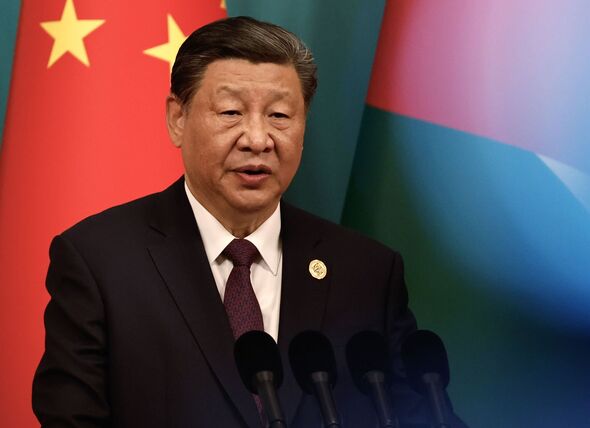Brussels woke up to a chilling warning from China as the bloc grapples with the growing influx of Chinese electric vehicles (EVs). Concerns are mounting that this trend could severely undermine the EU’s competitive edge in the burgeoning EV sector.
China has reacted strongly against the European Commission‘s anti-subsidy investigation into imported EVs, which may result in new tariffs aimed at countering alleged state aid to Chinese manufacturers.
The Chinese EVs, priced significantly lower than their European counterparts, are believed by Brussels to benefit from substantial government subsidies.
The investigation, initiated in September last year, is approaching the conclusion of its first phase, with provisional tariffs potentially being introduced as early as next month. Currently, the EU imposes a 10 percent levy on all imported cars.
Although the initial deadline of June 5 has been postponed until after the European Parliament elections, tensions remain high. The Chinese Foreign Ministry has ramped up its rhetoric, warning the Commission against proceeding with what it describes as “protectionist” measures.
“China urges the EU to stop the investigation as soon as possible so as not to disrupt China-EU economic and trade cooperation and the stability of industrial and supply chains,” stated Mao Ning, the ministry’s spokesperson, on Thursday. “If the EU insists on continuing with the investigation, China will not sit back and watch. We will take every necessary measure to firmly safeguard our lawful rights and interests.”
The China Chamber of Commerce to the EU (CCCEU) has indicated that retaliatory measures could include raising duties on imported large-engine vehicles to as much as 25 percent, which would impact some European manufacturers reliant on the Chinese market. Beijing may also escalate its anti-dumping probe into French brandy, a sector strongly supported by France, which is a key advocate for the EU inquiry.
The possibility of Chinese retaliation is a significant concern for member states, who must approve any tariff increase by a qualified majority. Ahead of a trade ministers’ meeting in Brussels on Thursday, representatives from Sweden and Ireland voiced their reservations, emphasising the importance of free and open markets.
“From a general perspective, and I say this all the time, we’re a bit skeptical, we don’t want to engage in any kind of trade war,” said Sweden’s Johan Forssell. “Obviously, it’s a problem what’s happening in China but there are also risks when it comes to having this kind of tariffs,” he added.
Germany, a leading car exporter, has expressed similar doubts, while Hungary, eager to attract Chinese investment, is staunchly opposed to the tariffs.
When asked about the potential loss of political support as the deadline neared, Executive Vice-President Valdis Dombrovskis maintained that the investigation was “running its course” and any tariffs imposed would be evidence-based.
“It’s a facts-based investigation,” Dombrovskis affirmed. “We still consider it’s important to move forward and ensure that we are levelling the playing field in this important area of competition, in a sense using our rights to defend ourselves against market distortions.”
According to the Commission, Chinese brands like BYD, Nio, and Xpeng have already captured 8 percent of the European EV market, up from 4 percent in 2021, with projections indicating a rise to 15 percent by 2025 if the current trend continues.
A report by the Rhodium Group highlights that EU imports of China-made EVs surged from $1.6bn (€1.5bn) in 2020 to $11.5bn (€10.6bn) in 2023. The report anticipates duties in the “15-30 percent range” but cautions that Chinese brands may have the flexibility to absorb these increases.
In contrast, the US recently announced a 100 percent tariff hike on imported Chinese EVs, increasing the pressure on Brussels to adopt a firmer stance.
